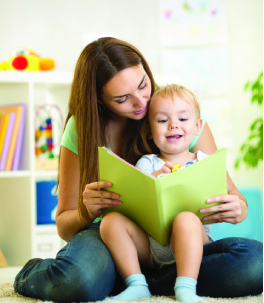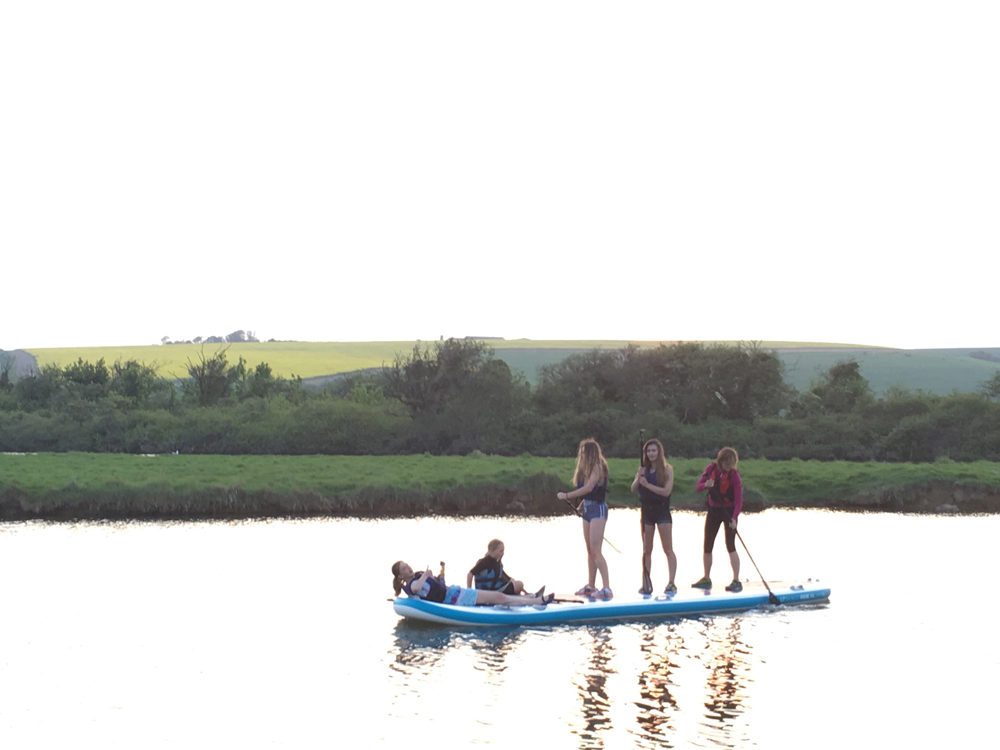
by Karen Emery
Founder of Haven & Base, Perinatal Practitioner, Parent Coach & Children’s Sleep Advisor
Becoming a parent is an incredibly exciting time for many new fathers but it is also a time of huge change and responsibility. It’s not uncommon for fathers to feel overwhelmed or daunted by the prospect of caring for a tiny baby.
Some new fathers may even feel excluded or ‘unneeded’ during the immediate time following birth and may feel they have no specific role (especially if their partner is breastfeeding), viewing mothers as the most important caregiver and preferring to take a more passive or secondary role themselves. But fathers are just as important to their new baby as mothers are. When fathers get involved in caring for a new baby right from birth, they can make a vital contribution to their children’s development. Babies need their fathers, just as they need their mothers, to love them, to be interested in them and to respond to their needs, making them feel valued and loved.
Fathers interact with infants in different ways to that of mothers. Fathers tend to be more playful and exploratory with their babies than mothers whose interactions are often more protective and nurturing. These early interactions between both a father and mother directly impact the way in which the baby’s brain will grow and develop but in slightly different ways. Research has shown us that sensitive, supportive and involved fathering, from birth, has been linked to a range of positive outcomes in babies, toddlers and children and in particular on a child’s language development, school readiness and positive self-esteem.
The important thing for fathers is to get involved and it doesn’t matter in what way. It can take time for new fathers to feel closely involved with their baby and that’s OK but daily ‘hands on’ experience together will help to forge a strong healthy relationship. It’s not about the time you spend together each day but the quality of the interactions that you share. It could be as simple as talking with your baby at a nappy change, taking your baby outside in a sling to explore the world, trying an hour of skin-to-skin (lying with your baby chest to chest) or singing your favourite song while gently rocking the baby.
Infant massage is a particularly beautiful one-to-one experience for new fathers to try with their babies and can be especially useful in promoting bonding where fathers are separated from their baby for extended periods due to work or relationship breakdown. Massaging a baby has great benefits for both fathers and babies as massage helps with calming and relaxing the infant, enhancing growth, improving infant sleep and for father’s massage helps to develop sensitivity to the baby and understand their needs better, helps to build a father’s confidence in handling and caring for their baby, and can even help lower a fathers own stress levels.
There are lots of infant massage courses for fathers to try in person or online. For more information about how to get started and the many benefits of infant massage, try The International Association of Infant Massage www.iaim.org.uk or you can book a father-baby massage course with Haven & Base www.havenandbase.com
‘Father’s matter too’ is the first of three articles in my series exploring early parenting. My next editorial: ‘Understanding the communication and capabilities of a new baby’ will feature in the spring 2022 edition, and will explore the ways in which a parent can understand and communicate with their baby right from birth.
Karen Emery has been supporting expectant parents and families for over 20 years as a midwife, health visitor, perinatal practitioner, and children’s sleep advisor.
Karen has a special interest and experience in infant mental health and early parenting.
For more information or to contact Karen you can email her directly at hello@havenandbase.com.
For more information about Haven & Base visit: www.havenandbase.com








 To help more young people benefit from the transformational power of travel and adventure, YHA has launched a campaign – The Adventure Effect. It hopes the campaign will inspire young people and their families to get outdoors.
To help more young people benefit from the transformational power of travel and adventure, YHA has launched a campaign – The Adventure Effect. It hopes the campaign will inspire young people and their families to get outdoors.
 Sussex and Surrey have an abundance of woodlands – here the flowers appear early in the year when the ground has warmed up and it is light. Once the leaves on the trees have come out, the woods become too shady for most flowers to grow. Plants that take full advantage of the brighter spring conditions include wood anemones, bluebells, primroses, common dog-violets and lesser celandines. Of all these, perhaps the bluebell puts on the most impressive display, for few wild flowers cover the ground so completely or smell as sweet. Chinthurst Hill near Wonersh, Brede Hill near Battle, Heaven Farm near Uckfield and Angmering Woods near Arundel, all put on annual bluebell spectaculars along with a medley of other spring flowers.
Sussex and Surrey have an abundance of woodlands – here the flowers appear early in the year when the ground has warmed up and it is light. Once the leaves on the trees have come out, the woods become too shady for most flowers to grow. Plants that take full advantage of the brighter spring conditions include wood anemones, bluebells, primroses, common dog-violets and lesser celandines. Of all these, perhaps the bluebell puts on the most impressive display, for few wild flowers cover the ground so completely or smell as sweet. Chinthurst Hill near Wonersh, Brede Hill near Battle, Heaven Farm near Uckfield and Angmering Woods near Arundel, all put on annual bluebell spectaculars along with a medley of other spring flowers. a captivating appeal for many people and to discover one is thrilling. Ditchling Beacon and Malling Down are excellent places to search for them. Look out now for the early purple orchid – its clusters of flowers, long spotted leaves and unpleasant smell help to identify it – and come back in the summer for more orchid spotting.
a captivating appeal for many people and to discover one is thrilling. Ditchling Beacon and Malling Down are excellent places to search for them. Look out now for the early purple orchid – its clusters of flowers, long spotted leaves and unpleasant smell help to identify it – and come back in the summer for more orchid spotting. There is no better season for listening to bird song and often the adventures begin by simply opening a window! Every habitat has its own star performers with some having flown vast distances to be with us. If you want to hear some outstanding virtuosos then head to heathlands such as Chobham, Pirbright, and Iping and Stedham Commons. Here you may hear (if not see) buzzy Dartford warblers, melodious willow warblers or perhaps a chirring nightjar or two. Even more discrete than these birds are the nightingale – its drab, brown colouring making it almost impossible to spot in the dense undergrowth it inhabits. Its song, though, is unmistakable and the male sings both day and night until it finds a mate. Make your way to Ebenhoe Common, Pulborough Brooks and Puttenham Common for an unforgettable auditory experience. Make a note of International Dawn Chorus Day which is on Sunday 2nd May this year. Events are usually planned by a range of local wildlife groups.
There is no better season for listening to bird song and often the adventures begin by simply opening a window! Every habitat has its own star performers with some having flown vast distances to be with us. If you want to hear some outstanding virtuosos then head to heathlands such as Chobham, Pirbright, and Iping and Stedham Commons. Here you may hear (if not see) buzzy Dartford warblers, melodious willow warblers or perhaps a chirring nightjar or two. Even more discrete than these birds are the nightingale – its drab, brown colouring making it almost impossible to spot in the dense undergrowth it inhabits. Its song, though, is unmistakable and the male sings both day and night until it finds a mate. Make your way to Ebenhoe Common, Pulborough Brooks and Puttenham Common for an unforgettable auditory experience. Make a note of International Dawn Chorus Day which is on Sunday 2nd May this year. Events are usually planned by a range of local wildlife groups.











